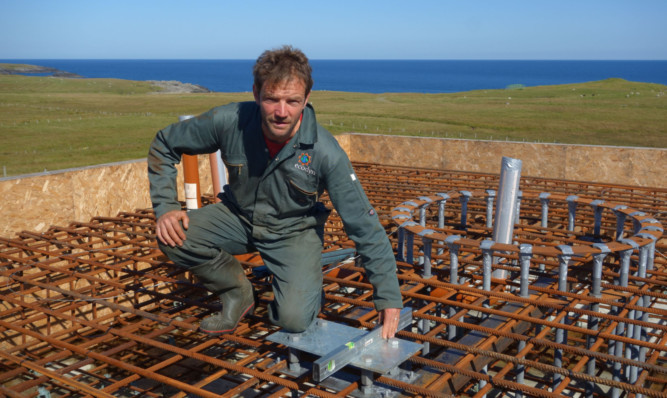A leading Fife environmental consultancy is encouraging communities to sign the Big 60 000 project petition and to contribute to the environment and stop spiralling energy bill rises.
Newburgh firm Ecodyn Ltd has developed community and co-operative wind energy programmes throughout Scotland.
However, its experts believe falling government incentives in 2015 could slow Scotland’s renewables momentum, with environmental consequences.
Falls in the Feed-In-Tariff scheme next spring which has financially encouraged communities to erect turbines and sell energy back to the grid will see fewer on-shore developments progressing.
This comes at a time when Scotland has failed to meet statutory carbon reduction targets for three years in a row.
Now an industry campaign group, Action For Renewables, is calling on individuals and local communities to support their Big 60 000 project.
The project aims to ask the government to review the level of percentage drop in incentives for small-scale wind projects, like farm and domestic turbines.
Ecodyn Ltd is supporting behind the project, claiming such developments are the only way for people to protect themselves against higher domestic energy bills.
Duncan Oswald, a chartered environmentalist and founder of Ecodyn Ltd, said: “We have been assessing how the fall in tariffs will affect the energy industry in Scotland.
“What we are realising is that, although the incentives are falling for generating renewable energy, the rationale for small-scale development remains very compelling.
“People are coming to us because they realise the only way to proof themselves against price rises from the Big 6 energy companies which are only going to go one way is to take control of their own energy use and costs. The best way to do this, for the longer-term, is to be self-sufficient and generate the energy you use in your home through small-scale developments such as on-shore wind.
“However, the Big 60 000 project and petition to government recognises that the removal of appropriate financial backing could undermine the progress which has been made in recent years.
“If Scotland is to meet environmental targets and if communities are to continue to take more control of where their energy comes from, we would encourage people to sign the Big 60 000 petition.”
Mr Oswald believes Scotland could continue to be at the forefront ofwind-energy provision, albeit with an altered emphasis. A move away from less popular, large-scale projects to smaller, community developments, like the Scandinavian model, is achievable but he believes it needs to be supported by government.
“We are finding that there is a new wave of wind energy converts, with the emphasis towards domestic and farm-scale wind energy. We are developing schemes like this in Tayside at present.
“From an environmental perspective, people find such developments appealing. They are cost-effective, non-controversial and common sense.
“However, to keep the momentum, there has to be a support structure to help individuals and communities. That is why initiatives like Big 60 000 are really important at this stage.”
